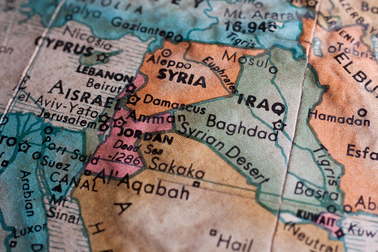What is the future of ISIS?
With their leader, al-Baghdadi dead what is ISIS’s next step

The violent death of Abu Bakr al-Baghdadi, the leader of the Islamic State, in a raid by the United States forces, was announced Sunday, October 26, 2019. He has been hunted for more than a decade and he partly built an organization based on the assumption that this day would come eventually.
Though this is a significant blow to the world’s most feared terrorist establishment experts argue that this is unlikely to freeze the Islamic State franchises and supporters. Under Mr. Baghdadi ISIS operated largely on its own. Though he demanded faithfulness and built a cult circle around himself (as many of his supporters considered him the leader of the Muslims worldwide) his primary concern was security. In his final years, he kept a very close circle of people including his wives, children and close associates and made very little direct contact with the outside world. This means that his organization operated with little input from him.
Many references to Islamic propaganda states that leaders may come and go but it is imperative for the movement to remain. Though ISIS may not dissipate completely it has certainly suffered a blow. Over the past few years, ISIS has been losing land at a rapid pace especially when earlier this year they lost control of their last territory in Syria.
It is important to highlight that the fight still isn’t over. In the past year alone the terrorist group has taken responsibility for the deadly attacks that have taken place in Afghanistan including a mosque bombing that killed over 70 people and a wedding blast that killed over 63 people. Omar Abu Layla, a Syrian who heads an activist news network called Deir Ezzour 24, said he expected Mr. al-Baghdadi’s death will discourage some while motivating others to avenge him.
Less than a day after al-Baghdadi’s death one of his potential successors along with other higher-ranking members of ISIS were killed in the US air raids. But since the Islamic State has moved away from centralized attacks over the past couple of years and has started focusing on emphasizing small groups and individual attacks there is less of a need for a higher command right away. This means that anyone could act in the group’s name and can multiply the Islamic State’s lethality by encouraging attacks remotely.
Former CIA agent, Dan Hoffman says, “This raid will not eliminate the debate about the president’s decision to withdraw our forces from Syria…this raid for sure is a great success. We removed a key terrorist leader from the battlefield. But there are a lot of ISIS terrorists enjoying ungoverned space in the region, ISIS decision making is decentralized, and al- Baghdadi will have a successor.”
Hey! My name is Sahithi Jammulamadaka and this is my fourth year on the Oakton Outlook staff and my second year as Editor-in-Chief! I am super involved...









